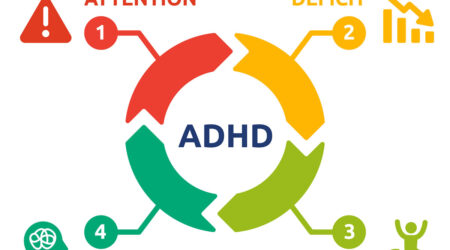Common Myths About Worm Infections You Shouldn’t Believe
Worm infections, also known as helminthic infections, are a widespread health issue that affects millions of people globally, particularly in regions with poor sanitation. Despite their prevalence, there are many myths surrounding these infections that can lead to misunderstanding, mistreatment, and unnecessary panic. In this article, we’ll debunk some of the most common myths about worm infections and provide accurate information to help you better understand and manage these conditions.
Myth 1: Only Poor Hygiene Causes Worm Infections
One of the most pervasive myths is that worm infections are solely caused by poor hygiene. While inadequate sanitation and hygiene can increase the risk, they are not the only factors. Worms can also be contracted through contaminated food and water, insect bites, and direct contact with infected soil. Even in developed countries with high standards of hygiene, people can still get infected by consuming undercooked meat or walking barefoot on contaminated soil. This misconception can lead to stigma and prevent people from seeking the necessary treatment.
Myth 2: Worm Infections Are Rare
Another common belief is that worm infections are rare, especially in developed countries. However, millions of people worldwide suffer from various types of worm infections, including roundworms, hookworms, and tapeworms. In fact, the World Health Organization estimates that over a billion people are affected by soil-transmitted helminths. While the prevalence is higher in tropical and subtropical regions, worm infections can occur anywhere, particularly among travelers and those with pets.
Myth 3: Worm Infections Are Harmless
Some people believe that worm infections are relatively harmless and do not require treatment. This is a dangerous misconception. While some worm infections may cause mild symptoms, others can lead to serious health complications if left untreated. For example, hookworm infections can cause anemia, and tapeworms can lead to malnutrition and organ damage. In children, worm infections can impair growth and cognitive development. Therefore, it’s crucial to seek medical treatment if you suspect a worm infection.
Myth 4: You Can’t Get Worms From Pets
It’s a common myth that worm infections cannot be contracted from pets. In reality, certain types of worms, such as roundworms and hookworms, can be transmitted from pets to humans, particularly through contact with contaminated feces. This is why regular deworming of pets is essential, along with practicing good hygiene, such as washing hands thoroughly after handling pets or cleaning up after them.
Myth 5: Worm Infections Are Always Visible
Many people assume that worm infections will always present with visible symptoms, such as worms in stool or on the skin. While some infections may exhibit these signs, many do not. Symptoms can be subtle or mistaken for other conditions, such as stomach cramps, nausea, fatigue, or weight loss. Because the symptoms are not always obvious, worm infections can go undetected for a long time, leading to complications. Regular medical check-ups and stool tests are necessary to diagnose worm infections accurately.
Myth 6: Natural Remedies Can Effectively Cure Worm Infections
There is a widespread belief in the effectiveness of natural remedies, such as garlic, pumpkin seeds, or papaya seeds, in curing worm infections. While some of these remedies might have mild antiparasitic properties, they are not a substitute for medical treatment. Relying solely on natural remedies can delay proper treatment and worsen the infection. The most effective way to treat worm infections is through prescribed antiparasitic medications, such as nizonide 500mg.
Myth 7: Antiparasitic Medications Are Dangerous
Some people avoid taking antiparasitic medications due to the fear of side effects or believing that these medications are too strong. While any medication can have side effects, antiparasitic drugs like Nizonide 500mg are generally safe when prescribed by a healthcare provider. The benefits of treating a worm infection far outweigh the potential risks of medication. Moreover, these medications are highly effective and can prevent serious health complications by eliminating the worms from the body.
Myth 8: You Only Need to Take Medication Once
A common misconception is that a single dose of antiparasitic medication is sufficient to cure a worm infection. While some infections can be treated with a single dose, others may require a course of treatment over several days or even weeks. It’s important to follow your healthcare provider’s instructions carefully and complete the full course of treatment. In some cases, follow-up tests may be necessary to ensure that the infection has been fully eradicated.
Myth 9: Children Are the Only Ones at Risk
While it’s true that children are more susceptible to worm infections due to their tendency to play in dirt and put objects in their mouths, adults are not immune. Adults can contract worm infections in the same ways children do, such as through contaminated food, water, or soil. Additionally, adults with weakened immune systems, such as those with chronic illnesses or who are pregnant, may be more vulnerable to severe complications from worm infections.
Myth 10: Worm Infections Are Easily Preventable
While good hygiene, proper sanitation, and food safety practices can reduce the risk of worm infections, they are not foolproof. In regions where worms are endemic, it can be challenging to avoid exposure completely. Even in places with high standards of hygiene, accidental ingestion of contaminated food or water can lead to infection. Therefore, it’s important to remain vigilant, practice preventive measures, and seek medical attention if you suspect an infection.
Conclusion
Worm infections are a serious global health issue, and misconceptions can lead to ineffective prevention and treatment strategies. Understanding the facts about worm infections can help you take the necessary steps to protect yourself and your family. If you suspect that you or someone you know has a worm infection, it’s essential to seek medical advice promptly. Treatment options, such as Nizonide 500mg, are available and can effectively cure the infection, preventing further health complications. By debunking these myths, we can improve awareness and promote better health practices worldwide.












Leave a Reply